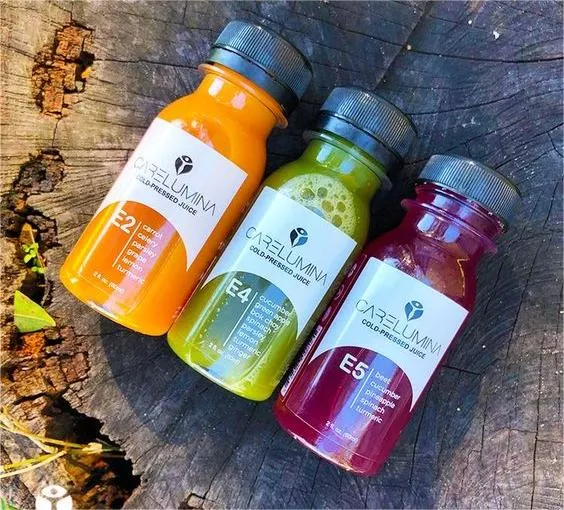Acidulants Used In Food
Acidulants are a type of food additive which can be found naturally in some foods or can be manufactured artificially to be utilized in the food and beverage industry. Acidulants used in food serve a myriad of purposes within this industry, making them one of the most essential food additives out there. Foods with an acidic taste to them are often described as acidulated or acidulous meaning that they possess a sour taste.

Types of Acidulants
The usage of acidulants in the food and beverage industry is not universally the same. It varies across regions and needs to be approved by the local food standards regulation authorities. These authorities determine which food additives are permitted to be used in the production of packaged foods in the region, including which acidulants can be used and which cannot be used. They also determine the safe-to-consume limits for all additives, and food manufacturers need to ensure that they use the products within the specified limits.
There are numerous types of acidulants which can be predominantly divided into natural acids and artificially manufactured acids. Both of these kinds can be used in foods as long as they are food grade acidulants. Whether or not a particular type is food grade can vary based on the region where it is being used.
Natural acidulants: Natural acidulants include acids like citric acid which can be found in citrus foods, and lactic acid which is found in products like yogurt, which have been fermented. Other naturally found acidulants include malic acid which is found in several fruits such as apples, and play a vital role in adding a tart flavor to foods where they are added. Tartaric acid, which can be procured through grapes, and other fruits is also widely used in the food and beverages industry, particularly for the production of juices, candies, wines, etc.
Artificial acidifiers: Artificial acidifier, as the name suggests, are those acids which are produced through artificial and controlled processes of fermentation. Phosphoric acid, fumaric acid, citric acid anhydrous, ascorbic acid, sodium lactate, calcium lactate, citric acid monohydrate, sodium citrate, sodium acetate, sodium gluconate, and potassium acetate are the most commonly used artificial acidulants used by food manufacturers around the world.
Advantages of An Acidulant
The advantages that an acidulant provides can be understood by the purposes that it serves. Within the food and beverage industry, these food additives are widely used for fulfilling all or one of the following functions, ensuring that the foods manufactured and sent to the markets are shelf-stable, long-lasting, and delicious tasting. The following are the key advantages they offer.
- Enhancing Taste: The primary objective for which acidulant food additives are utilized is their ability to improve the flavor of the foods to which they are added. For industrially produced foods, for example, where these are extensively used, they help in creating a great balance of flavors. Even when added to fresh cooked foods, these help in balancing out the sweetness, and saltiness, thereby uplifting the overall flavor profile.
- Regulating pH: Guided by food safety regulations, acidulants used in beverages and foods serve the purpose of balancing the pH levels of the product. They balance the alkaline content with the acidity, ensuring that microbial and bacterial growth is prevented. This helps lock in freshness, and avoid products from getting spoiled.
- Influencing Texture: Through chemical reactions with certain products like gelling agents, acidulants in food can also influence the texture of the food to which they are added. For instance, this is highly effective and prominently used in gummy candies for the kind of texture it creates. Beyond gummies, these additives can be utilized for increasing the tenderness of meat products or for improving the juiciness of certain types of vegetables and fruits.
- Preserving Foods: Acid in foods has been a very commonly used method for preserving certain food products. It is widely used in the making of pickles and preserves of various kinds because it prevents microbes and bacteria from growing in the food. Food products that demand long-term preservation rely heavily on the utilization of these additives.

Finding The Right Acidulant Supplier
For food manufacturers, finding the right acidulant supplier is of critical importance to ensure that the food manufactured is safe for consumption, and aligned with the standards set by the regional food standards authority. Some of the features to look out for when choosing a supplier include the following:
Purpose Of Use: The primary consideration needs to be what kind of products the acidulants have to be utilized in. Foods as well as beverages can require different kinds of acidulants. Specific types of acidulants have to be used for specific types of foods. As such, it is essential to know what kind of acidulant you require and find the right supplier for that additive.
Assess Credentials: Aligned with the particular food safety standards that can apply to your region, it is essential to assess the particular credentials of all potential suppliers to check their suitability for your needs. For instance, ISO, FSA, GMP, and other kinds of credentials should be checked along with other certifications that may be applicable.
Acidulants are an essential food additive within the food and beverage industry, as they play a multifaceted role in the production and stabilization of bulk-produced foods. Food manufacturers should carefully choose suppliers and ensure that they use the additives as per the relevant regulations applicable to them.
Related Posts:
1. Citric Acid Monohydrate Buying Guide
2. Potassium Sorbate Buying Guide
